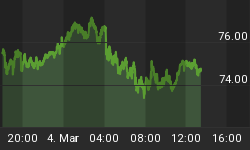This week, we were treated to strong statements by both Treasury Secretary Hank Paulson and Fed Chairman Ben Bernanke about the desirability of a "strong dollar", and the intention of policy makers to pursue strategies that will enhance its value. To the relief of many, the dollar responded to the moral support and managed a mild rally. The move is inconsequential. The harsh realities have not changed in the slightest, and the dollar is set to continue its overall decline.
Although some investors respond to such jawboning, the more sophisticated international players, who in large part determine the foreign exchange market, do not. Why the bearish sentiment despite the bullish talk from Washington?
First, the political situation is that both Paulson and Bernanke were handed a poisoned chalice by their predecessors. By consuming more than we have produced for decades, Americans are now confronting the reality of diminished living standards. These inevitable declines have been masked by a series of massive liquidity injections by former Fed Chairman Greenspan. This was done to avoid the political cost of the natural corrective medicine of recession. It fueled both the dot.com and the real estate booms. The current liquidity injections are now fueling inflation in food and energy.
The problem for policy makers is that large portions of the electorate are starting to realize that a weak dollar is not simply a problem for those who vacation in Paris. People innately understand that a falling dollar is adding to the cost of living. So there are very strong political reasons for the Fed and the Treasury to talk tough on the dollar. In his Congressional testimony, Bernanke noted that the strength of the dollar is "a top priority". Notably, he did not say that it was "the" top priority.
The political reality of the continued erosion of American wealth, and the reluctance of officials to allow the public to fully comprehend the extent of the problem, has tied their hands and feet. However, their mouths still have the ability to move freely.
While inflation inflicts greater economic damage over the long term, recession causes more "political" damage over the short term. In an election year, it may come as no surprise that the short term problems will attract the lion's share of attention. However, the rest of the world is not nearly as concerned with these political points, and instead favors combating inflation over recession.
Doubtless, Bernanke and Paulson see the acute danger of raising rates to combat inflation and to defend the U.S. dollar. The present recession is based on a housing collapse of gigantic proportions and could all too easily be pushed into a depression by an interest rate hike. With this terrifying prospect in view, it is little wonder that Bernanke and Paulson are keener to avoid depression.
Therefore, like a tackler in American Football or in Rugby, it pays not to look at what an opponent 'says' with his eyes or arms or mouth, but at what he 'does', with his feet! By ignoring the head fakes, and concentrating solely on the fundamentals, it's easy to see that the Fed is pursuing a policy of inflation and dollar debasement. So, expect continued soft to neutral action on interest rates, accompanied by further overall weakness in the U.S. dollar.
With such a stance likely to be in place well into 2009, international faith in the U.S. dollar may fall to such depths that the special "reserve" status it enjoys may be challenged by the Euro. This possibility would move a step closer to a probability once the European Union becomes a sovereign state after January 1, 2009.
For a more in depth analysis of our financial problems and the inherent dangers they pose for the U.S. economy and U.S. dollar denominated investments, read Peter Schiff's book "Crash Proof: How to Profit from the Coming Economic Collapse." Click here to order a copy today.
More importantly, don't wait for reality to set in. Protect your wealth and preserve your purchasing power before it's too late. Discover the best way to buy gold at www.goldyoucanfold.com, download our free research report on the powerful case for investing in foreign equities available at www.researchreportone.com, and subscribe to our free, on-line investment newsletter at http://www.europac.net/newsletter/newsletter.asp.















